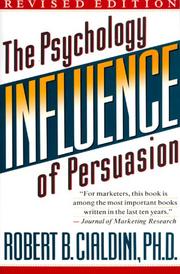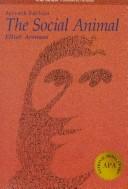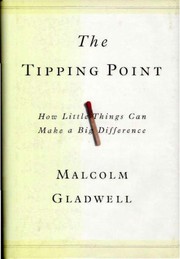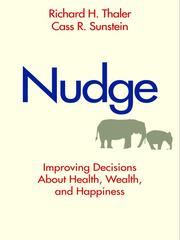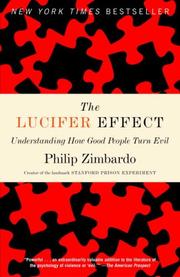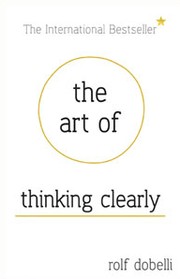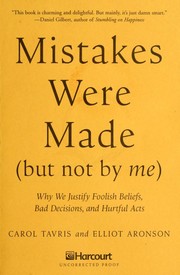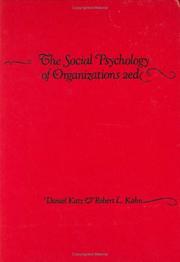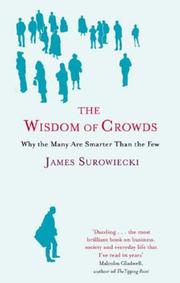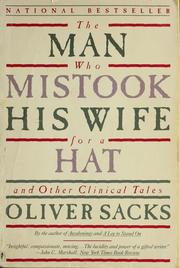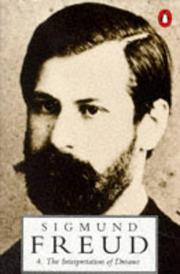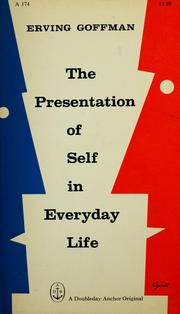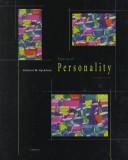Are you fascinated by the intricacies of human behavior and social interactions? Dive into the fascinating world of social psychology with these 20 must-read books. Whether you’re a student, psychologist, or simply curious about the human mind, these books on social psychology offer profound insights into topics like conformity, persuasion, and group dynamics. From classic works by renowned psychologists to modern explorations of social behavior, this curated list has something for everyone. Get ready to expand your understanding of the complexities of human nature and society with these insightful social psychology books.
Contents
- 1 20 Best Social Psychology Books
- 2 Influence: The Psychology of Persuasion
- 3 The Power of Habit: Why We Do What We Do in Life and Business
- 4 Thinking, Fast and Slow
- 5 The Social Animal
- 6 Sapiens: A Brief History of Humankind
- 7 The Righteous Mind: Why Good People Are Divided by Politics and Religion
- 8 Predictably Irrational: The Hidden Forces That Shape Our Decisions
- 9 The Tipping Point: How Little Things Can Make a Big Difference
- 10 Nudge: Improving Decisions About Health, Wealth, and Happiness
- 11 The Lucifer Effect: Understanding How Good People Turn Evil
- 12 The Art of Thinking Clearly
- 13 Mistakes Were Made (But Not by Me): Why We Justify Foolish Beliefs, Bad Decisions, and Hurtful Acts
- 14 The Social Psychology of Organizations
- 15 The Wisdom of Crowds
- 16 The Happiness Hypothesis: Finding Modern Truth in Ancient Wisdom
- 17 The Man Who Mistook His Wife for a Hat and Other Clinical Tales
- 18 The Interpretation of Dreams
- 19 The Presentation of Self in Everyday Life
- 20 Theories of Personality
- 21 Quiet: The Power of Introverts in a World That Can’t Stop Talking
- 22 Final Thoughts on Best Social Psychology Books
- 23
20 Best Social Psychology Books
Influence: The Psychology of Persuasion
by Robert Cialdini
Influence: The Psychology of Persuasion is a captivating book on social psychology by Robert Cialdini that explores the science behind why people say “yes” and how to apply these principles to everyday life. Cialdini delves into the psychology of influence, uncovering the six key principles that drive human behavior: reciprocity, commitment and consistency, social proof, authority, liking, and scarcity.
With engaging storytelling and real-world examples, Cialdini demonstrates how these principles are used by marketers, salespeople, and even con artists to sway our decisions. He also offers practical advice on how to recognize and resist these tactics, empowering readers to become more aware and intentional in their choices.
Whether you’re interested in understanding the psychology behind persuasive techniques or looking to enhance your own ability to influence others, this social psychology book provides valuable insights that will change the way you perceive and respond to persuasion in all aspects of life.
The Power of Habit: Why We Do What We Do in Life and Business
by Charles Duhigg
The Power of Habit: Why We Do What We Do in Life and Business by Charles Duhigg is a captivating book on social psychology that delves into the science of habits and their impact on our lives. Through compelling stories and cutting-edge research, Duhigg explores the power of habits and how they shape individuals, organizations, and societies.
Duhigg demonstrates how habits work, why they exist, and how they can be changed. He reveals the neurological patterns that form habits and explains how they can be rewired. The book also discusses the habits of successful companies and the role they play in achieving business success.
By understanding the mechanisms behind habits, readers are empowered to take control of their behaviors and make positive changes in their personal and professional lives. The Power of Habit offers valuable insights into the psychology of behavior and provides practical strategies for transforming habits. This social psychology book is a thought-provoking and enlightening read that will leave readers with a deeper understanding of themselves and the world around them.
Thinking, Fast and Slow
by Daniel Kahneman
Thinking, Fast and Slow by Daniel Kahneman is a captivating book on social psychology that delves into the intricacies of human decision-making. Kahneman, a Nobel Prize-winning psychologist, explores the two systems that drive the way we think: the fast, intuitive, and emotional “System 1” and the slow, deliberate, and logical “System 2.” Through engaging real-life examples and thought-provoking experiments, Kahneman uncovers the cognitive biases and errors that influence our judgment and decision-making processes.
This social psychology book offers valuable insights into how our minds work and why we make the choices we do. It challenges readers to question their own thought processes and provides a deeper understanding of the psychological mechanisms that shape our behavior. Thinking, Fast and Slow is a must-read for anyone interested in understanding human behavior, decision-making, and the complexities of the mind.
The Social Animal
by Elliot Aronson
The Social Animal by Elliot Aronson is a fascinating exploration of human behavior and the forces that shape our actions. This insightful book on social psychology delves into the complexities of our social interactions, shedding light on the subconscious influences that drive our decisions and relationships. Aronson’s engaging narrative takes readers on a journey through the intricate web of social dynamics, drawing from compelling real-life examples and psychological research to unravel the mysteries of human behavior.
Through vivid storytelling and thought-provoking analysis, The Social Animal offers readers a deeper understanding of the hidden forces at play in our everyday lives. From the impact of social norms and conformity to the power of persuasion and prejudice, this book about social psychology uncovers the underlying mechanisms that shape our thoughts and actions. With its rich blend of science and storytelling, The Social Animal is a captivating exploration of the human psyche that will leave readers with a newfound appreciation for the complexities of social interaction.
Sapiens: A Brief History of Humankind
by Yuval Noah Harari
Sapiens: A Brief History of Humankind by Yuval Noah Harari is a captivating journey through the history of humanity, exploring how Homo sapiens became the dominant species on Earth. This thought-provoking book delves into the evolution of humans, from the Cognitive Revolution to the Agricultural Revolution, and beyond. Harari explores how humans have shaped the world around them, from the development of language and culture to the rise of empires and globalization.
This book on social psychology challenges readers to rethink their understanding of human history and society, offering fresh insights into the forces that have shaped our collective destiny. Harari’s engaging writing style and ability to distill complex ideas into accessible prose make Sapiens a compelling and enlightening read for anyone interested in the human experience. Whether you’re a history buff, a psychology enthusiast, or simply curious about the story of our species, Sapiens offers a fascinating exploration of the human journey.
The Righteous Mind: Why Good People Are Divided by Politics and Religion
by Jonathan Haidt
The Righteous Mind: Why Good People Are Divided by Politics and Religion by Jonathan Haidt is a thought-provoking book on social psychology that delves into the reasons behind people’s moral and political divisions. Haidt, a renowned social psychologist, explores the psychological foundations of morality and how they shape our political and religious beliefs.
Through engaging storytelling and in-depth research, Haidt argues that our moral intuitions often guide our political and religious affiliations, leading to deep-seated divisions between individuals and groups. He introduces the concept of moral foundations, highlighting how they influence our decision-making and perceptions of right and wrong.
This book about social psychology challenges readers to consider the origins of their own moral beliefs and encourages a deeper understanding of the perspectives of others. Haidt’s insights provide valuable knowledge for anyone seeking to comprehend the complexities of human morality and the divisive nature of contemporary politics and religion. Whether you’re interested in psychology, politics, or sociology, this social psychology book offers a compelling exploration of the factors that shape our moral and ideological differences.
Predictably Irrational: The Hidden Forces That Shape Our Decisions
by Dan Ariely
Predictably Irrational: The Hidden Forces That Shape Our Decisions by Dan Ariely is a captivating book on social psychology that delves into the irrationality behind our decision-making processes. Dan Ariely, a renowned behavioral economist, explores the hidden forces that influence our choices, uncovering the irrational patterns that govern our behavior.
Ariely presents a thought-provoking analysis of human behavior, using engaging experiments and real-life examples to demonstrate how our decisions are often swayed by predictable irrationalities. From the impact of social norms and emotions to the allure of freebies and the pitfalls of comparison, Ariely provides fascinating insights into the complex world of decision-making.
This book about social psychology challenges conventional wisdom and offers readers a fresh perspective on the factors that shape our choices. Through Ariely’s engaging storytelling and compelling research, readers gain a deeper understanding of their own behavior and the forces that influence the decisions we make every day. Predictably Irrational is a must-read for anyone interested in understanding the intriguing nuances of human decision-making.
The Tipping Point: How Little Things Can Make a Big Difference
by Malcolm Gladwell
The Tipping Point: How Little Things Can Make a Big Difference is a captivating book on social psychology by Malcolm Gladwell. In this thought-provoking read, Gladwell explores the fascinating concept of how small changes can lead to significant outcomes, using a range of real-life examples and case studies to demonstrate his points.
By delving into the intricate dynamics of human behavior and social trends, Gladwell uncovers the tipping points that cause ideas, products, and behaviors to spread like wildfire. He discusses the influential roles of connectors, mavens, and salesmen in the process of social epidemics, shedding light on the factors that contribute to their success.
Through engaging storytelling and compelling research, Gladwell offers readers valuable insights into the mechanisms behind social phenomena, making this book about social psychology an enlightening and enriching read. Whether you’re interested in understanding the dynamics of viral marketing, the spread of diseases, or the rise of cultural trends, The Tipping Point provides a captivating exploration of the tipping points that lead to transformative change.
Nudge: Improving Decisions About Health, Wealth, and Happiness
by Richard H. Thaler and Cass R. Sunstein
Nudge: Improving Decisions About Health, Wealth, and Happiness is a groundbreaking book on social psychology written by Richard H. Thaler and Cass R. Sunstein. This insightful and thought-provoking book explores the concept of ‘nudging’ and how small changes in the way choices are presented can have a big impact on decision-making.
Thaler and Sunstein delve into the ways in which individuals can be influenced to make better choices for their health, finances, and overall well-being. They discuss the power of choice architecture and how it can be used to guide people towards making more beneficial decisions without restricting their freedom.
With real-world examples and practical advice, Nudge offers a compelling look at the intersection of economics, psychology, and public policy. This book about social psychology challenges readers to rethink the way they approach decision-making and provides valuable insights for individuals, organizations, and policymakers alike. Whether you’re interested in behavioral economics or simply want to understand how to make better choices, Nudge is a must-read social psychology book that will leave you with a fresh perspective on the world around you.
The Lucifer Effect: Understanding How Good People Turn Evil
by Philip Zimbardo
The Lucifer Effect: Understanding How Good People Turn Evil by Philip Zimbardo is a captivating and thought-provoking book on social psychology. In this compelling work, Zimbardo delves into the dark depths of human behavior, exploring how seemingly good people can be influenced to commit acts of evil. Drawing from his famous Stanford Prison Experiment and other real-life examples, Zimbardo examines the powerful impact of situational forces and authority figures on individual behavior, shedding light on the disturbing potential for ordinary individuals to engage in harmful actions.
Through engaging storytelling and insightful analysis, Zimbardo challenges readers to reconsider their understanding of human nature and the role of social influence in shaping behavior. The Lucifer Effect is a must-read for anyone interested in the complexities of human psychology and the underlying factors that contribute to acts of cruelty and injustice. This gripping social psychology book offers a compelling exploration of the darker side of human behavior, providing valuable insights into the complexities of morality and the potential for good people to turn evil.
The Art of Thinking Clearly
by Rolf Dobelli
The Art of Thinking Clearly by Rolf Dobelli is a captivating book on social psychology that delves into the various cognitive biases and logical fallacies that often cloud our decision-making processes. Dobelli, a Swiss writer and entrepreneur, presents a collection of 99 short chapters, each focusing on a specific mental pitfall that humans commonly encounter. Through engaging anecdotes, he illustrates how these biases influence our perceptions, judgments, and choices in everyday life.
Readers will gain valuable insights into the workings of the human mind, learning to recognize and navigate these cognitive traps. Whether it’s the ‘confirmation bias’ that leads us to seek out information that supports our preconceptions or the ‘sunk cost fallacy’ that makes us cling to past investments, Dobelli offers practical strategies to overcome these pitfalls and make clearer, more rational decisions.
With its accessible writing style and thought-provoking content, The Art of Thinking Clearly is a must-read for anyone interested in enhancing their critical thinking skills and understanding the intricacies of human cognition.
Mistakes Were Made (But Not by Me): Why We Justify Foolish Beliefs, Bad Decisions, and Hurtful Acts
by Carol Tavris and Elliot Aronson
Mistakes Were Made (But Not by Me) is a fascinating book on social psychology that delves into the human tendency to justify our foolish beliefs, bad decisions, and hurtful acts. Written by Carol Tavris and Elliot Aronson, this insightful book explores the concept of cognitive dissonance, which is the discomfort we feel when our actions and beliefs are in conflict.
Through engaging storytelling and thought-provoking research, the authors uncover the ways in which we rationalize our own mistakes and justify our actions, often leading to destructive consequences. They delve into various real-life examples, from personal relationships to political scandals, shedding light on the universal human tendency to avoid admitting fault and taking responsibility.
With a blend of wit, wisdom, and compelling evidence, Mistakes Were Made (But Not by Me) offers a captivating exploration of the human psyche and the mechanisms at play when it comes to self-justification. This social psychology book is a must-read for anyone interested in understanding the complexities of human behavior and decision-making.
The Social Psychology of Organizations
by Daniel Katz and Robert L. Kahn
The Social Psychology of Organizations by Daniel Katz and Robert L. Kahn is a seminal book on social psychology that explores the dynamics of human behavior within organizational settings. Through a comprehensive analysis of group behavior, communication patterns, leadership styles, and power dynamics, the authors provide valuable insights into the complexities of organizational behavior.
This book about social psychology delves into the ways in which individuals and groups interact within the context of work environments, shedding light on the underlying psychological processes that shape organizational culture and effectiveness. By examining the influence of social factors on decision-making, motivation, and conflict resolution, Katz and Kahn offer practical knowledge for managers, leaders, and anyone interested in understanding the intricacies of organizational dynamics.
With its rich theoretical framework and real-world examples, this social psychology book is essential reading for students, professionals, and researchers seeking to deepen their understanding of the psychological underpinnings of organizational behavior and dynamics.
The Wisdom of Crowds
by James Surowiecki
The Wisdom of Crowds by James Surowiecki is a fascinating exploration of the phenomenon of collective intelligence. This book on social psychology delves into the idea that large groups of people are often better at making decisions and predictions than individuals or small groups. Surowiecki provides numerous examples from various fields, including business, politics, and science, to illustrate how the collective wisdom of diverse individuals can lead to remarkably accurate outcomes.
Through engaging storytelling and thought-provoking analysis, The Wisdom of Crowds challenges our assumptions about leadership and expertise, and offers valuable insights into how social dynamics can shape decision-making processes. Surowiecki’s social psychology book is not only informative but also highly relevant in today’s interconnected world, where the power of crowdsourced knowledge and opinion is increasingly shaping our society. Whether you’re interested in psychology, economics, or sociology, this book about social psychology is sure to spark your curiosity and change the way you think about the wisdom of crowds.
The Happiness Hypothesis: Finding Modern Truth in Ancient Wisdom
by Jonathan Haidt
The Happiness Hypothesis: Finding Modern Truth in Ancient Wisdom by Jonathan Haidt is a thought-provoking book on social psychology that explores the intersection of ancient wisdom and modern science. Haidt, a renowned psychologist, takes readers on a journey through history, philosophy, and psychology to uncover the secrets to lasting happiness.
Through engaging storytelling and compelling research, Haidt delves into timeless ideas from great thinkers such as Plato, Buddha, and Confucius, and examines them through the lens of contemporary psychology. He skillfully weaves together insights from diverse traditions to offer practical advice for living a more fulfilling and meaningful life.
With a blend of wit and wisdom, Haidt challenges readers to reconsider their beliefs about happiness and offers a fresh perspective on how to achieve it. The Happiness Hypothesis is a captivating social psychology book that will leave readers with a deeper understanding of human nature and the keys to true happiness.
The Man Who Mistook His Wife for a Hat and Other Clinical Tales
by Oliver Sacks
The Man Who Mistook His Wife for a Hat and Other Clinical Tales by Oliver Sacks is a fascinating collection of case studies that delves into the intricate workings of the human brain. With a keen eye for detail and a deep understanding of neurology, Sacks takes readers on a journey through the lives of his patients, each grappling with a unique neurological disorder. From individuals experiencing baffling perceptual distortions to those struggling with memory loss and other cognitive impairments, Sacks paints a vivid and poignant picture of the human experience.
This captivating book offers a glimpse into the complexities of the mind and the profound impact that neurological conditions can have on a person’s life. Through these compelling stories, Sacks invites readers to contemplate the fragile nature of the human brain and the resilience of the human spirit. Whether you’re a psychology enthusiast, a student of the mind, or simply curious about the intricacies of the human brain, this book is sure to leave a lasting impression.
The Interpretation of Dreams
by Sigmund Freud
The Interpretation of Dreams by Sigmund Freud is a groundbreaking book on social psychology that delves into the unconscious mind and the significance of dreams. Freud, often referred to as the father of psychoanalysis, explores the complex and hidden meanings behind our dreams, arguing that they are a window into our deepest desires, fears, and conflicts.
In this influential work, Freud presents his theory of dream interpretation, discussing the role of symbolism, wish fulfillment, and the unconscious in shaping our dreams. He also introduces the concept of the “dream work,” the process by which the mind transforms unconscious thoughts into the manifest content of dreams.
Through vivid case studies and insightful analysis, Freud offers a compelling argument for the importance of understanding dreams as a means of gaining insight into our innermost thoughts and emotions. The Interpretation of Dreams continues to be a foundational text in the field of psychology, and a must-read for anyone interested in the complexities of the human mind.
The Presentation of Self in Everyday Life
by Erving Goffman
The Presentation of Self in Everyday Life is a fascinating book on social psychology that delves into the concept of impression management and how individuals strategically present themselves in social interactions. Erving Goffman, a prominent sociologist, analyzes the ways in which people perform and manipulate their identities to create certain impressions in various social settings. He introduces the idea of the “dramaturgical perspective,” likening social interactions to a theatrical performance, where individuals play different roles to convey specific images to others.
Goffman’s insightful exploration of the intricacies of human behavior and social interactions makes this book about social psychology a must-read for anyone interested in understanding the complexities of everyday life. Through vivid examples and thought-provoking analysis, Goffman sheds light on the subtle nuances of social interactions, exposing the underlying dynamics at play. Whether you’re a student of sociology or simply curious about the intricacies of human behavior, The Presentation of Self in Everyday Life offers a compelling and enlightening perspective on the intricacies of social psychology.
Theories of Personality
by Richard M. Ryckman
Theories of Personality by Richard M. Ryckman is a comprehensive and insightful book on social psychology that explores the various theories and perspectives on personality development. Ryckman delves into the complexities of human nature and behavior, offering an in-depth analysis of the major theories of personality, including psychodynamic, humanistic, cognitive, and trait perspectives.
Through engaging and thought-provoking discussions, the book provides a deep understanding of the influential factors that shape an individual’s personality, such as genetics, environment, and personal experiences. Ryckman also examines the practical applications of these theories, offering valuable insights for understanding and interacting with others in different social and cultural contexts.
With its accessible writing style and fascinating case studies, Theories of Personality is a must-read for anyone interested in understanding human behavior and the intricacies of personality development. Whether you’re a student of psychology or simply curious about the workings of the human mind, this social psychology book will broaden your understanding of what makes us who we are.
Quiet: The Power of Introverts in a World That Can’t Stop Talking
by Susan Cain
Quiet: The Power of Introverts in a World That Can’t Stop Talking by Susan Cain is a thought-provoking book about social psychology that explores the power and potential of introverts in a society that often values extroversion. Cain delves into the traits and characteristics of introverts, dispelling myths and misconceptions about their quiet nature. She discusses the impact of introverts in various aspects of life, from the workplace to relationships, and provides valuable insights into how introverts can harness their strengths to thrive in a world that often favors extroversion.
Through engaging storytelling and compelling research, Cain sheds light on the valuable contributions of introverts and encourages readers to embrace and celebrate their own introverted qualities. This social psychology book is a must-read for anyone looking to gain a deeper understanding of introversion and the dynamics of personality in a world that can sometimes feel overwhelmingly extroverted.
Final Thoughts on Best Social Psychology Books
Exploring the fascinating world of Social Psychology through literature can be an enriching and enlightening experience. The 20 best books about social psychology listed in this article offer a diverse and insightful look into the complexities of human behavior and social interactions. Whether you’re a psychology enthusiast, a student, or simply curious about the workings of the human mind, these books provide valuable perspectives and knowledge that can broaden your understanding of the social world. Dive into these compelling reads and embark on a journey of discovery and self-reflection.
Which book about Social Psychology is best?
The best book on Social Psychology can vary with personal preference, but three widely recommended titles are:
- Influence: The Psychology of Persuasion by Robert Cialdini,
- The Power of Habit: Why We Do What We Do in Life and Business by Charles Duhigg,
- Thinking, Fast and Slow by Daniel Kahneman.
Each offers valuable insights and could be a great starting point.
What are the best books to learn about Social Psychology?
For those looking to learn about Social Psychology, there is a wealth of literature that can provide a comprehensive understanding of the subject. Some of the most highly recommended books include:
- Influence: The Psychology of Persuasion by Robert Cialdini,
- The Power of Habit: Why We Do What We Do in Life and Business by Charles Duhigg,
- Thinking, Fast and Slow by Daniel Kahneman,
- The Social Animal by Elliot Aronson,
- Sapiens: A Brief History of Humankind by Yuval Noah Harari,
- The Righteous Mind: Why Good People Are Divided by Politics and Religion by Jonathan Haidt,
- Predictably Irrational: The Hidden Forces That Shape Our Decisions by Dan Ariely,
- The Tipping Point: How Little Things Can Make a Big Difference by Malcolm Gladwell,
- Nudge: Improving Decisions About Health, Wealth, and Happiness by Richard H. Thaler and Cass R. Sunstein,
- The Lucifer Effect: Understanding How Good People Turn Evil by Philip Zimbardo
These books offer a range of perspectives on Social Psychology, covering various aspects and approaches to the subject.
What are the best books about Social Psychology?
The best books about Social Psychology are:
- Influence: The Psychology of Persuasion by Robert Cialdini,
- The Power of Habit: Why We Do What We Do in Life and Business by Charles Duhigg,
- The Art of Thinking Clearly by Rolf Dobelli,
- Mistakes Were Made (But Not by Me): Why We Justify Foolish Beliefs, Bad Decisions, and Hurtful Acts by Carol Tavris and Elliot Aronson,
- The Tipping Point: How Little Things Can Make a Big Difference by Malcolm Gladwell,
- The Righteous Mind: Why Good People Are Divided by Politics and Religion by Jonathan Haidt.
Each offers unique insights into the subject. While these books about Social Psychology are highly regarded, it’s important to note that any list of ‘best’ books is subjective and reflects a range of opinions.
What are the best Social Psychology books of all time?
Choosing the best Social Psychology books of all time can vary depending on who you ask, but five titles that are often celebrated include
- Influence: The Psychology of Persuasion by Robert Cialdini,
- The Power of Habit: Why We Do What We Do in Life and Business by Charles Duhigg,
- Sapiens: A Brief History of Humankind by Yuval Noah Harari,
- The Tipping Point: How Little Things Can Make a Big Difference by Malcolm Gladwell,
- and The Art of Thinking Clearly by Rolf Dobelli.
Each of these books has made a significant impact in the field of Social Psychology and continues to be influential today.

